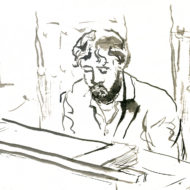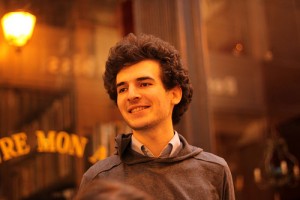As major startup centers in Europe jostle for prominence, from London, Berlin, Paris, Dublin to Barcelona, we see great events regularly filling our calendars. Each cities have their own intrinsic qualities some are younger and hyper in their approach like Berlin. Whilst London being the largest with the greatest number of startups, that can boast diversity and creativity matched by none. We also see refreshing alliances with LeWeb, websummit and Next events rotating across different cities.
An acceleration of innovation come in many shapes and forms, its the explosion of activities in mobiles, internet of things and 3d printing is transforming the scene and will continue to do so for the future.
Each city operates in their own eco system, often with matching silicon alleys, valleys and roundabouts. A rainbow of accelerators, incubators and hubs are formenting within them to attract investor and entrepreneurs. A melting pot of connections and cross breeding unfolds. This is where European diversity cause of hindrance to its speed in progress becomes an advantage over the US monopolistic prominence, However in order to make it a reality and take full advantage, it has to be coupled with favorable legislature to provide the necessary infrastructure and tax policies to make it a fertile ground for growth with schemes such as UK S/EIS we are getting a step closer to that goal, still more needs to be done particularly for ones looking for bigger rounds to make it a more attractive proposition
Theophil Haberstroh interview by Christian Boas
Theophil Haberstroh is a freelance business developer, specialized in helping French digital companies to enter and develop the German market.
He is French-German, was born in Germany, and studied Economics at the Universität Mannheim and Entrepreneurship at HEC Paris, where he holds a Masters Degree (2010). He worked two years for Groupon, where he was Online Marketing Manager and Business Developer.
In his free time he trains for ultra runs, goes to contemporary art exhibitions and plays the trumpet. He is also an active member of the DCFA.
CB: What is the DFCA ?
TH: The DCFA (Digital Club Franco-Allemand), is a business club for French and
Germans who work in the digital industry and who want to promote the
exchanges between the two countries. We are a non-profit organization. Our
aim is to become a single point of contact for everyone who is looking to
expand in the respective digital market. We provide quick answers to the
questions someone can have, information and contacts.
CB: Do you see potential for doing something similar like this with the uk, or
does even infact a group like that exist ?
TH: We created this club, as we all have a special link to Germany and France.
This is why we started with those two countries. Nevertheless, we consider
ourselves European and are open to work together with other groups that
promote the link in the digital economy between two countries.
CB: What do you believe the French and Germans have profited most from each
other cooperating ?
TH: Going international allows companies to be more open minded and to be
actually present in the respective country. This allows to work and live
with the neighbor on a daily basis and acquire knowledge, that a local
competitor can’t acquire. This is especially true for French German
cooperation’s, as those countries are among the biggest in Europe and as the
history of both is closely linked.
CB: Anything the British could learn from your group ? Can they join as well ?
TH: Our group is for people who are interested in France and Germany, so
British could also join! They can learn from our group that we need to
communicate more between the countries within Europe, and we would love to
have members that are French, German, and British!
TH: What would you like to happen in the future with your group ?
We would like to organize more events like we did at the NEXT Conference,
in order to create awareness at different levels. It is time to have an
active French-German & European ecosystem and to communicate more between
the countries.
CB: Thanks for the Q & A

